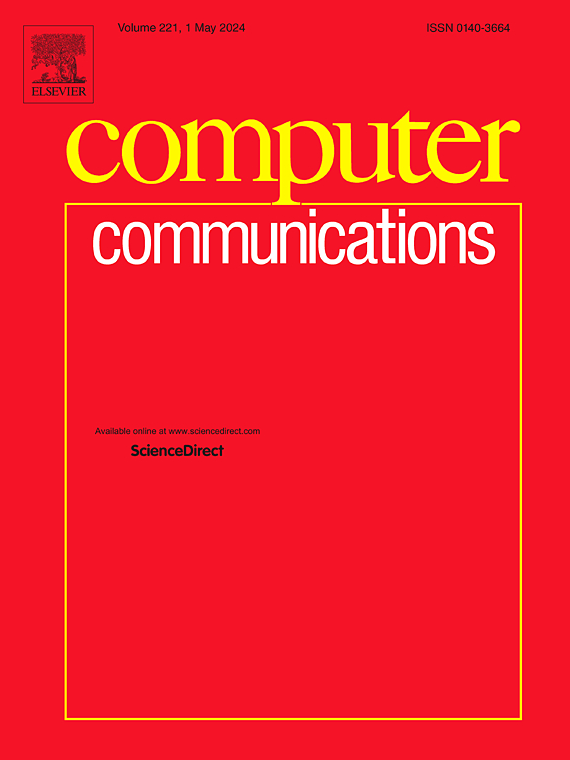BRI-MAC: Broadcast Receiver Initiated MAC protocol for Internet of Things
IF 4.3
3区 计算机科学
Q1 COMPUTER SCIENCE, INFORMATION SYSTEMS
引用次数: 0
Abstract
Efficient energy management in IoT networks, particularly at the MAC layer, is essential due to the excessive energy consumption of traditional protocols caused by retransmissions, idle listening, and control overhead. To address these challenges, this paper proposes BRI-MAC (Broadcast Receiver-Initiated MAC), a multi-hop duty cycle MAC protocol that enhances energy efficiency, reduces latency, and optimizes packet delivery. BRI-MAC employs a rendezvous beacon for transmission scheduling and integrates a collision resolution mechanism to minimize energy waste. In addition to performance improvements, BRI-MAC strengthens IoT security by mitigating DDoS, Sybil, and jamming attacks through adaptive scheduling and resilient multi-hop broadcasting. Simulation results demonstrate that BRI-MAC reduces end-to-end delay by 20 %, achieves a 97 % packet reception rate, maintains low energy consumption (30 %), and offers excellent scalability (90 %), compared to existing MAC protocols such as RI-MAC and EnRI-MAC. These findings highlight its superiority over conventional MAC protocols, making it a compelling solution for large-scale, energy-constrained IoT deployments.
BRI-MAC:广播接收机发起的物联网MAC协议
在物联网网络中,特别是在MAC层,高效的能源管理是必不可少的,因为重传、空闲侦听和控制开销会导致传统协议的过度能耗。为了解决这些挑战,本文提出了BRI-MAC(广播接收器发起的MAC),这是一种多跳占空比MAC协议,可提高能效,减少延迟并优化数据包传输。BRI-MAC采用交会信标进行传输调度,并集成了冲突解决机制,最大限度地减少了能源浪费。除了性能改进之外,BRI-MAC还通过自适应调度和弹性多跳广播来减轻DDoS, Sybil和干扰攻击,从而增强物联网安全性。仿真结果表明,与现有的MAC协议(如RI-MAC和EnRI-MAC)相比,BRI-MAC减少了20%的端到端延迟,实现了97%的数据包接收率,保持了低能耗(30%),并提供了出色的可扩展性(90%)。这些发现突出了其相对于传统MAC协议的优势,使其成为大规模、能源受限的物联网部署的引人注目的解决方案。
本文章由计算机程序翻译,如有差异,请以英文原文为准。
求助全文
约1分钟内获得全文
求助全文
来源期刊

Computer Communications
工程技术-电信学
CiteScore
14.10
自引率
5.00%
发文量
397
审稿时长
66 days
期刊介绍:
Computer and Communications networks are key infrastructures of the information society with high socio-economic value as they contribute to the correct operations of many critical services (from healthcare to finance and transportation). Internet is the core of today''s computer-communication infrastructures. This has transformed the Internet, from a robust network for data transfer between computers, to a global, content-rich, communication and information system where contents are increasingly generated by the users, and distributed according to human social relations. Next-generation network technologies, architectures and protocols are therefore required to overcome the limitations of the legacy Internet and add new capabilities and services. The future Internet should be ubiquitous, secure, resilient, and closer to human communication paradigms.
Computer Communications is a peer-reviewed international journal that publishes high-quality scientific articles (both theory and practice) and survey papers covering all aspects of future computer communication networks (on all layers, except the physical layer), with a special attention to the evolution of the Internet architecture, protocols, services, and applications.
 求助内容:
求助内容: 应助结果提醒方式:
应助结果提醒方式:


